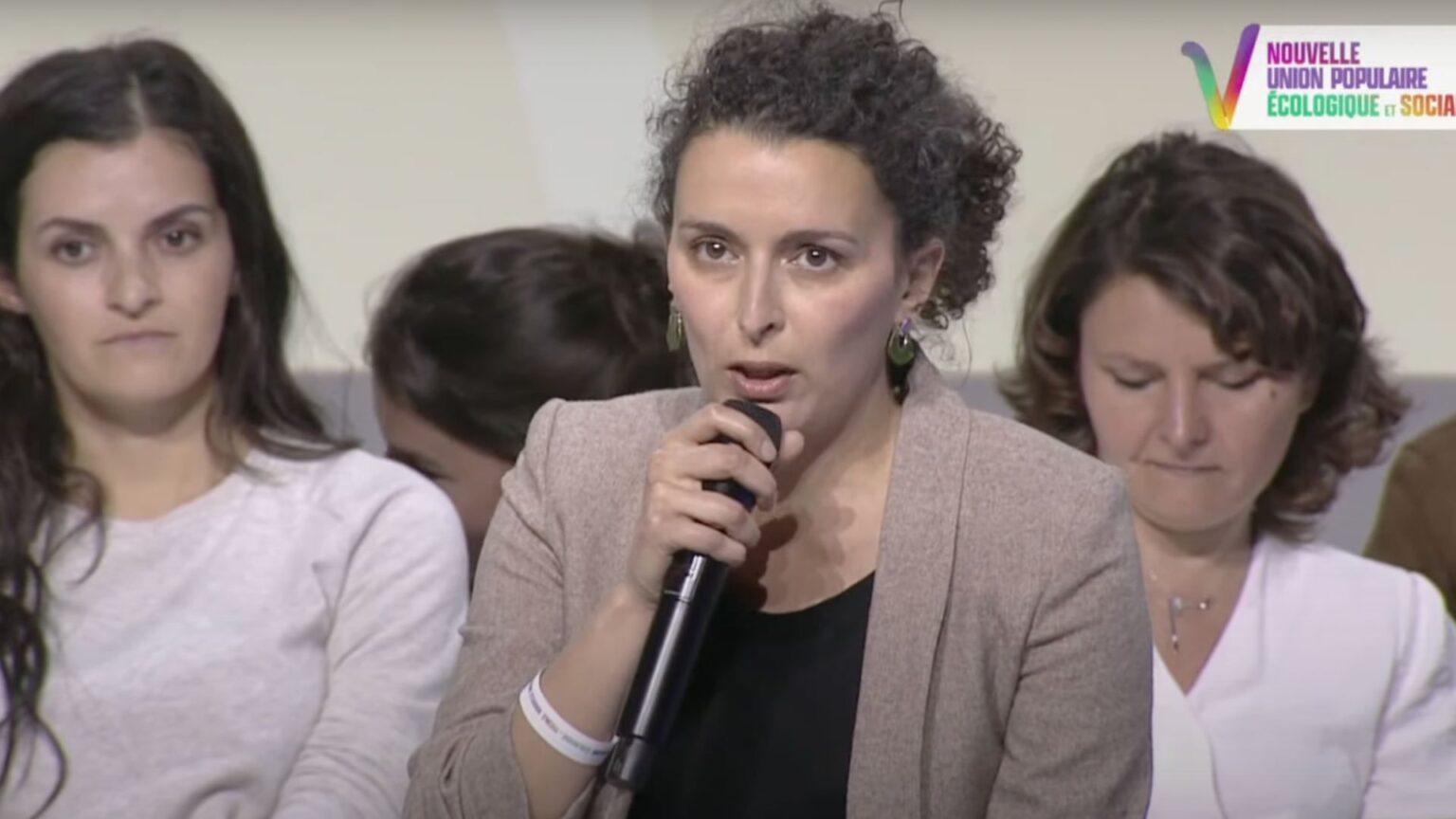The announcement was made on November 25, 2022, during the evening Everything will be fine, (necessarily) ironic award ceremony to salute the sexism of politicians, organized by the Observatory on sexist and sexual violence in politics. On stage, between two awards, Nadhéra Beletreche and Assia Hifi presented for the first time the creation ofObservatory on Racism in Politics and its launch on December 3, the anniversary of the arrival of the 1983 March for Equality and Against Racism.
“Today the observation is alarming and without appeal”lamented Assia Hifi on the podium: “Racism in public debate has become commonplace. The RN and the other racist parties made spectacular progress and amassed more than 13 million votes. 89 far-right deputies entered the National Assembly. »

To understand this trivialization of racist discourse in politics and more generally in the media, but also to learn more about this new instrument of struggle which is the Observatory of Racism in Politics, we met Nadhéra Beletreche. This antiracist, feminist, and LGBTQIphobia activist served as a Cachan city councilor from 2008 to 2014 and was a legislative candidate for Nupes in 2022. She is also the author of Toxi-city, to end the ghettos.
Laxity in the face of racism
This activist has witnessed the rise of far-right ideas since 2005, the year she began her activism and the year Zyed and Bouna died in Clichy-sous-Bois, two teenagers who were trying to escape the control of the police. It is in this period that you participate in the creation of the Racailles de France collective, a deliberately provocative name to indicate “this dichotomy that Sarkozy, then Minister of the Interior, made between real young people who study and the scum who burn cars” : “We were young students and we didn’t want to dissociate the rioters. »
Has racism remained in the blind spot of the fight against discrimination? She goes even further:
“I see no political response to racism, no serious measures. I feel all the more comfortable saying this because I’m an LGBTphobia activist and a feminist, and I see the difference in treatment.
The feminist struggles have an echo now, even if it is not easy, and also the struggles against LGBTphobia, the government has announced 1.5 million euros for this mandate. But what have they done against racism? There is no public order in the matter. »
In addition to this first observation, a second one led to the creation of this Observatory of Racism in Politics, which “of an underrepresentation of racialized people, non-white people” in the political arena: “The National Assembly is not yet an assembly representing the diversity of the French people. »

The left must also address its own racism
It would be wrong to attribute the spread of racist ideas to a single political party. Nadhéra Beletreche reminds us that racism is not just everywhere, but it is mostly part of how power is organised : “They would have us believe that racism is simply the National Gathering, whereas like homophobia, sexism structures all of our institutions. »
It also points to a very strong misunderstanding on this issue of racism in political parties perceived to be progressive:
“Left parties naturally believe they are anti-racist, but what are they actually doing against racism? Do they have listening cells? Are there any training courses? And why did they invest so few non-whites and working-class neighborhoods in legislative elections? »
And even invested, they are never safe from a reversal of their own field. In May 2021, during the departmental election campaign, Sara Zemmahi, LREM candidate from Montpellier, was violently attacked by Jordan Bardella and the National Gathering because she wore her headscarf on her election manifesto. Far from supporting it, LREM delegate general Stanislas Guérini later threatened to withdraw the party’s support if the photo was not changed. In France, therefore, a woman wearing a headscarf has no place on an election poster.
Examples of ordinary racism, Nadhéra Beletreche experienced it herself:
“When I was a legislative candidate, I was systematically confused with a right-wing candidate from North African immigration. We didn’t look alike at all. You don’t even realize what’s at stake when there are only two Asians or only two Blacks, and you think it’s the same person. »
Finally, he warns against a form of exploitation when parties choose to invest racialized people, but without going much further: “It is figurative. Dispersing your executive with two or three Arabs, or two Asians, does not constitute anti-racist public policy. »
A French denial?
How to explain the lack of political commitment against racism? For Nadhéra Beletreche, the answer is necessarily multifactorial. The activist already sees a link with this French-style universalism, a “a story that has crushed particularisms but believes itself truly universal”.
It is also impossible to get around the colonial history of France:
“This takes us directly to a past that France no longer wants to hear about, that some French people no longer want to hear about. Even if the discourse is changing, even if today we don’t talk about racialized people in the same way as during the colonial era, there are stereotypes that derive from that history. Talking about racism also means talking about France’s colonial past as slavers. I think that’s another sticking point. »
An observatory to quantify racial discrimination
Levers of action are possible, but not without a clear political will. Nadhéra Beletreche takes as an example the laws that impose quotas on women, under penalty of sanctions to achieve equality. However, France remains a country resistant to coercive measures and statistics on the lack of representation of racialized people. “We are uncomfortable with this, whereas if we did, I think we would measure the extent of the phenomenon. But making this diagnosis would also mean putting measures in place. »
The first objective for the Observatory is to obtain funding for the start of studies to quantify discrimination in institutions, identify glass ceilings, and a call for testimonials to collect the words of those who experience racism in politics.
See this post on Instagram
Why not even a ceremony on the model of Everything will be fine to define racist remarks that are too little recognized as such: “There is total laissez-faire. Racist words are spoken every day with no reaction to their faces, they are well established columnists and they build us as a threat on almost every issue: on security, on secularism, even on feminism, and on the identity of France now, with the “big substitute”. This word which is spoken with complete impunity, obviously did consequences. »
The creators of the Observatory want to install a “balance of power” with institutions: “We also want to disturb the government”insists Nadhéra Beletreche. “We will ask for accountability, just like the feminists who are asking for two billion euros to fight gender-based and sexual violence. »
Photo credit: Richard Ying and Tangui Morlier, CC BY-SA 3.0, via Wikimedia Commons
Help us build the future of Madmoizelle by answering this survey!
Source: Madmoizelle
Mary Crossley is an author at “The Fashion Vibes”. She is a seasoned journalist who is dedicated to delivering the latest news to her readers. With a keen sense of what’s important, Mary covers a wide range of topics, from politics to lifestyle and everything in between.



